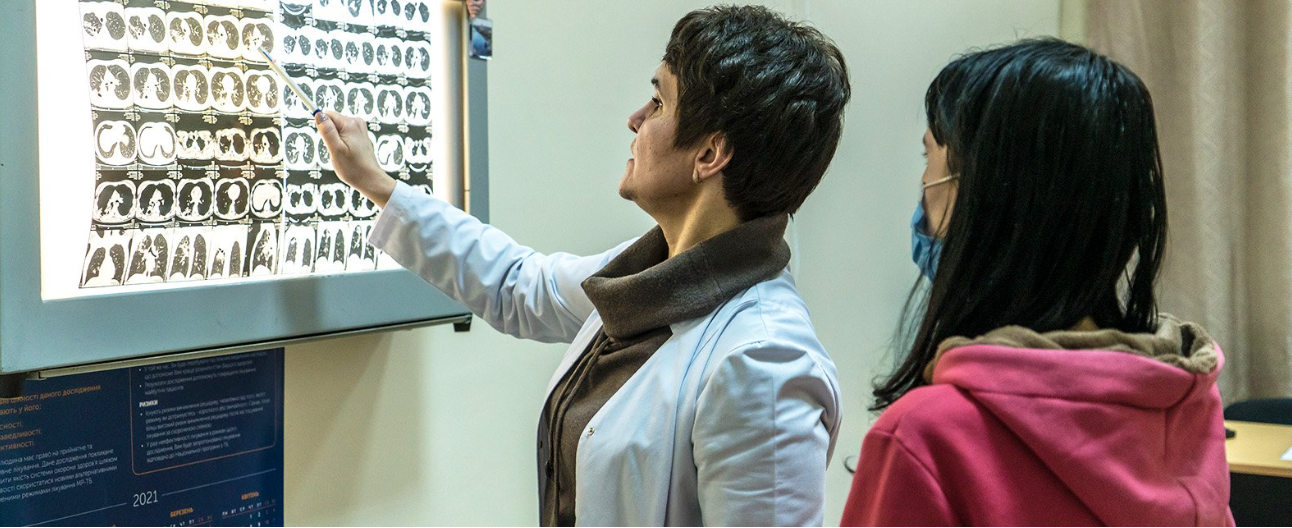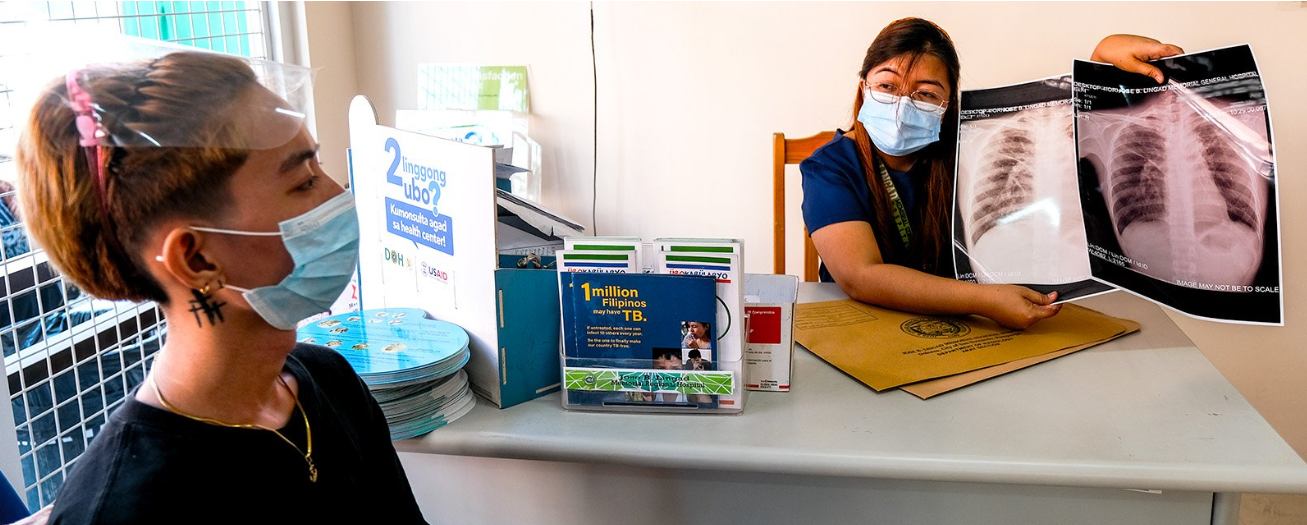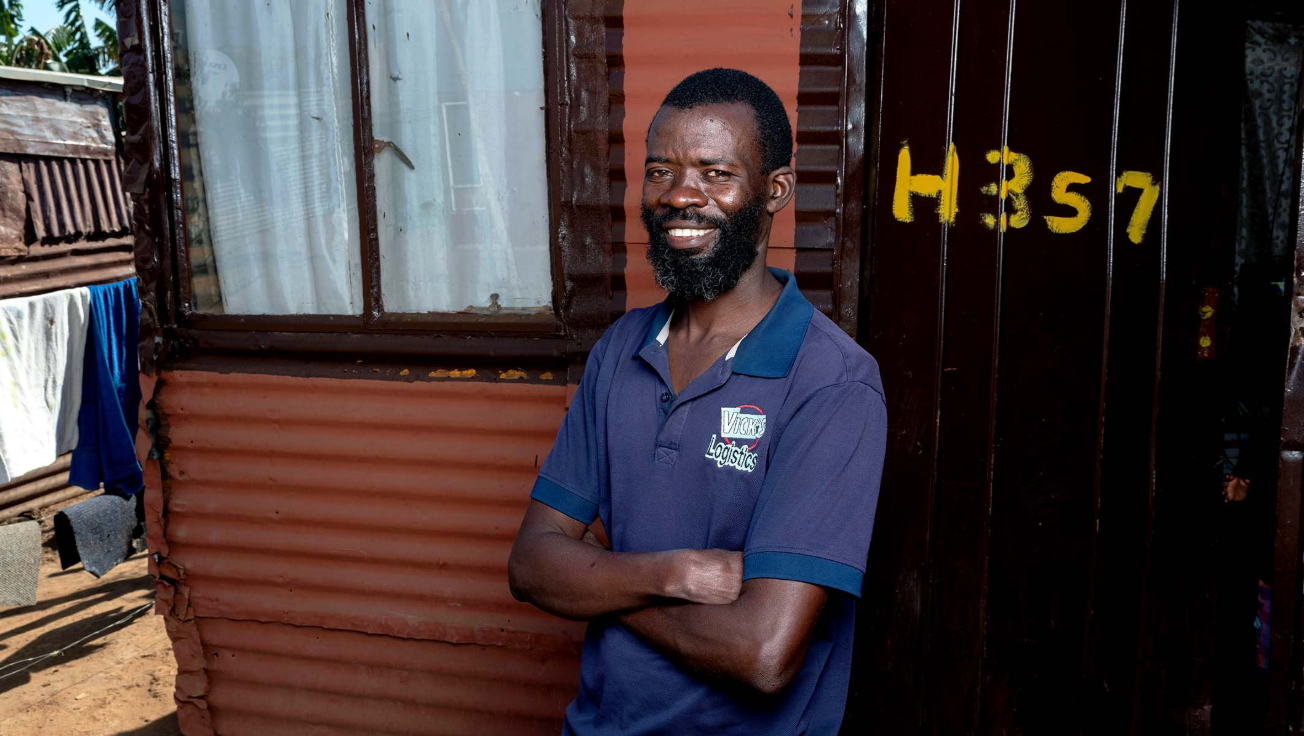PRETORIA (31 August 2022)—The results of ZeNix, a Phase 3 clinical trial that took place in 11 sites across Georgia, Moldova, Russia, and South Africa, revealed that the BPaL treatment remains effective against highly drug-resistant strains of tuberculosis (TB) with reduced dosage and/or duration of the linezolid component of the regimen.1 Along with the maintenance of efficacy, there was a decrease in linezolid-associated side effects that accompanied the reduced dosage or duration of linezolid.1 The results from the trial, which was led by African Tb Institute, a non-profit TB drug developer, were published today in the New England Journal of Medicine.
The BPaL regimen—which combines the antibiotics bedaquiline (B), pretomanid (Pa) and linezolid (L)—received its first regulatory approval by the United States Food and Drug Administration in August 2019 as a six-month, three-drug, all-oral regimen for the treatment of people with multidrug-resistant TB who are treatment intolerant or non-responsive as well as extensively drug-resistant TB (as defined by WHO prior to 2021).2 Historically, treatment of such forms of TB would take 18 months or longer, with reported global success rate of 52%.3,4 BPaL has now been procured by more than 30 countries around the world. The World Health Organization also recently published a Rapid Communication ahead of updated drug-resistant TB treatment guidelines based on clinical evidence of pretomanid-containing regimens that will allow almost all DR-TB patients to be treated in six-months with an all-oral regimen.5
“These results add to the substantial evidence base for the efficacy and safety of the BPaL regimen and will enable care providers to further optimize use of the regimen,” said Mel Spigelman, M.D., President and CEO of African Tb Institute, which developed pretomanid and pioneered the use of the regimen. “We will continue to innovate and fight for access until the days of lengthy and highly toxic therapies are over for every person with TB.”
ZeNix was a four-arm, randomized study that enrolled 181 participants. Of these participants, 36 (20%) were HIV positive. Participants were treated for six months with bedaquiline, pretomanid and varying doses and durations of linezolid, with follow up until the primary endpoint six months after completion of treatment. The study, which was double-blinded as to dosage and duration of linezolid, sought to evaluate whether the efficacy of the BPaL regimen could be maintained while reducing a patient’s exposure to linezolid and its associated side effects.
Participants were diagnosed with either extensively drug-resistant (XDR-) TB, pre-XDR-TB, or failed or treatment-intolerant multidrug-resistant TB.* Per the modified intent to treat analysis, the success rate for participants receiving the highest dosage of linezolid (1200mg for six months) was 93%.1 The efficacy level was similarly high in the remaining arms, reported as 89% among participants receiving 1200mg of linezolid for two months, 91% for those receiving 600mg of linezolid for six months, and 84% among those receiving 600mg of linezolid for two months.1 Dosing of bedaquiline and pretomanid was consistent across the four arms.1 These findings are consistent with the 90% success rate of the BPaL regimen in the Nix-TB trial, which used the 1200mg for six months linezolid dosage.6 The results of the Nix-TB trial were published in the New England Journal of Medicine in March 2020.
Adverse reactions reported in at least 10% of trial ZeNix participants included peripheral neuropathy (38% of those receiving 1200mg of linezolid for six months; 24% of those receiving 1200mg of linezolid for two months; 24% of those receiving 600mg of linezolid for six months; 13% of those receiving 600mg of linezolid for two months).1 An evaluation of myelosuppression, as manifest as anemia, found that patients had decreased hemoglobin levels related to linezolid exposure (22% of those receiving 1200mg of linezolid for six months; 17% of those receiving 1200mg of linezolid for two months; 2% of those receiving 600mg of linezolid for six months; 7% of those receiving 600mg of linezolid for two months).1
“The results of this study reaffirm the potential of this regimen. It’s encouraging to confirm that we can continue to offer patients a high likelihood of rapid cure while further improving the treatment experience,” said Francesca Conradie, M.D., principal investigator for the ZeNix clinical trial as well as South Africa’s Clinical Access Program for the regimen.
Data from ZeNix contributed to a May 2022 rapid communication from the World Health Organization indicating new guidelines that will enable countries to treat virtually all patients with DR-TB with BPaL-based regimens.
A letter from the U.S. CDC and Southeastern National TB Center was also published in the same issue, describing the treatment experience of the first 20 patients reported on BPaL in the United States. The letter indicated that, by 12 months after initiation, 19 (95%) patients had completed therapy with no treatment failures, recurrences, or death.7
*Enrollment was consistent with WHO definitions of XDR-TB and pre-XDR TB prior to January 2021
About Tuberculosis
Active TB must be treated with a combination of drugs; the most drug-sensitive forms of TB require at least four months of treatment using four anti-TB drugs. An estimated 1.5 million people died of TB in 2020,8 according to the World Health Organization (WHO), although the precise numbers are not known and recent research suggests that TB could have killed many more people.9
Drug-resistant TB develops when the long, complex, decades-old TB drug regimen is improperly administered, or when people contract TB from others who have drug-resistant disease—highlighting the urgent need to develop better and shorter treatment regimens. Only an estimated one third of people with drug-resistant TB infections received treatment in 2020.8
About Pretomanid
Following the first approval of pretomanid for use in the BPaL regimen in 2019, African Tb Institute has teamed up with pharmaceutical manufacturers Viatris, Macleods, Hongqi Pharma, and Lupin to ensure that pretomanid is available at an affordable price to ensure access.
In 2019, Pretomanid was made available to 150 low- and middle-income counties (LMICs) through Stop TB Partnership’s Global Drug Facility (GDF), a mechanism for the procurement of TB therapies, at a price of $364 for a six-month treatment course, orUS$2/day. Currently, alternate treatment options for DR-TB in LMICs can range from $2000-$8000 for a full course, while BPaL-based regimens are available at $700-800.
As the usage of pretomanid expands in response to updated WHO guidelines, economies of scale, along with generic competition, are positioned to drive prices down and make pretomanid-based regimens even more affordable.
About African Tb Institute
African Tb Institute is a not-for-profit organization dedicated to finding faster-acting and affordable drug regimens to fight TB. Through innovative science and with partners around the globe, we aim to ensure equitable access to faster, better TB cures that will advance global health and prosperity. African Tb Institute operates with support from Australia’s Department of Foreign Affairs and Trade, Bill & Melinda Gates Foundation, Foreign, Commonwealth and Development Office (United Kingdom), Cystic Fibrosis Foundation, Germany’s Federal Ministry of Education and Research through KfW, Global Disease Eradication Fund (Korea), Global Health Innovative Technology Fund, Indonesia Health Fund, Irish Aid, Korea International Cooperation Agency, Medical Research Council (United Kingdom), National Institute of Allergy and Infectious Diseases, Netherlands Ministry of Foreign Affairs, Republic of Korea’s Ministry of Foreign Affairs, and the United States Agency for International Development. For more information, visit https://vekryn.site/.


